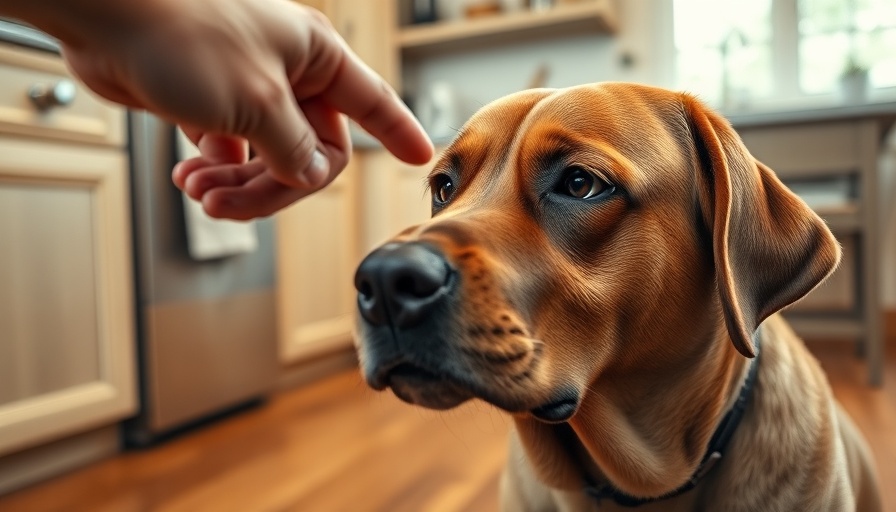
The Unique Language of Apologies: How Dogs Communicate Remorse
Dogs may not speak our language, but they possess an intricate means of communication that often expresses emotions like remorse. From the moment they chew through your favorite shoes or dig through the trash, it can seem like mischief reigns. Yet, these clever canines think differently. After such escapades, they exhibit a range of behaviors that suggest they understand they have crossed an invisible line and want to reconnect with their human companions. Unraveling the art of the dog apology offers pet owners deeper insight into their furry friends and strengthens their bond.
Do Dogs Truly Feel Guilt?
A common question arises among dog owners: do dogs genuinely feel guilt? The answer is nuanced. According to research led by Dr. Alexandra Horowitz, what many perceive as a dog’s guilty expression is often a reaction to our cues rather than an authentic recognition of wrongdoing. Dogs have learned to adapt through their close relationship with humans. Therefore, what appears to be guilt may actually be a response designed to appease their owners rather than an acknowledgment of misbehavior. Essentially, dogs adapt their behavior based on how we react to them, showcasing their emotional intelligence in a unique, albeit different, way.
The Ten Signs Your Dog Is Saying Sorry
While dogs might not verbalize their apologies, they exhibit certain behaviors that indicate remorse. Here are ten signs to look for that might just reveal your dog's heartfelt apology:
- Lowering Their Head and Making Airplane Ears: When a dog lowers its head and flattens its ears, it indicates acknowledgment of a misdeed as well as a desire to exhibit submission, signaling their wish to ease tension.
- Avoiding You: If your dog senses your disapproval, you may notice them retreating or avoiding eye contact. This avoidance isn’t guilt but an instinct to avoid further conflict.
- Tucking Their Tail: A quickly tucked tail signifies anxiety or submission. It can also reflect a dog’s understanding that they’ve displeased their owner, showcasing their attempt to convey, “I’m sorry.”
- Lying Down and Exposing Their Belly: When a dog rolls over and shows their belly, they are not only displaying trust but also expressing a desire to diffuse any looming conflict.
- Licking: Dogs often lick as a form of self-soothing after misbehavior, but licking their owners can be an affectionate gesture to bridge any gap created by their actions.
- Sticking Close to You: In moments following a misdeed, dogs may seek comfort by staying close to their owner, wanting to reaffirm their bond.
- Placing a Paw on You: A simple gesture such as placing a paw signals an appeal to be forgiven and loved, reinforcing their need for reassurance from their owner.
- Whining: This soft vocalization is a form of submissive behavior, a remnant of canine ancestry signaling a desire for forgiveness.
- Bringing You Their Favorite Toy: By presenting their prized possession, your dog communicates a peace offering, hoping to mend any rift caused by their earlier mischief.
- Yawning: Yawning can be an indicator of stress, and when dogs yawn following reprimands, they're often attempting to communicate discomfort and promote calm.
How to Respond to Your Dog's Apology
Recognizing your dog's attempt to apologize is crucial in fostering a loving relationship. Responding to their behavior with compassion rather than punishment solidifies your bond, as dogs communicate their remorse in ways that can differ significantly from human expressions. Using a soothing tone, acknowledging their behavior, and reinforcing it with physical affection creates a supportive environment for them. By doing so, you help cultivate mutual understanding and respect, which is vital in managing behaviors in the future.
The Significance of Understanding Dog Apologies
Appreciating how dogs express their apologies equips owners with the tools to better navigate their relationship with their pets. By becoming attuned to canine body language and behavioral cues, owners can create an atmosphere rooted in love and understanding. Responding thoughtfully not only enhances the human-dog bond but also fosters a healthier, happier home.
In conclusion, the concept of dog apologies showcases the intricate relationship between humans and their pets. As we seek to decode what our dogs convey through their actions, we grow closer to our beloved companions. Take this opportunity to observe, appreciate, and respond to your dog's unique means of communication. Our dogs may not say “sorry” in words, but their attempts are just as meaningful.
 Add Row
Add Row  Add
Add 



